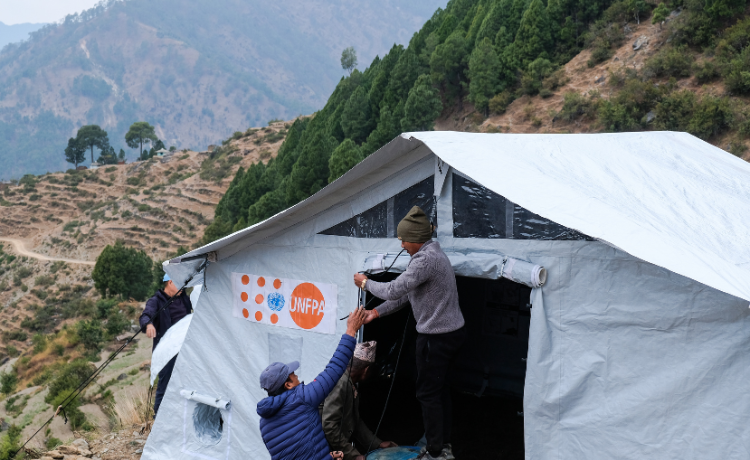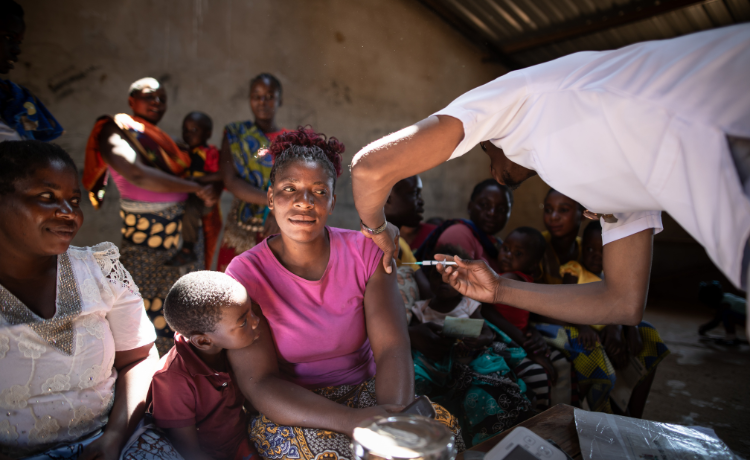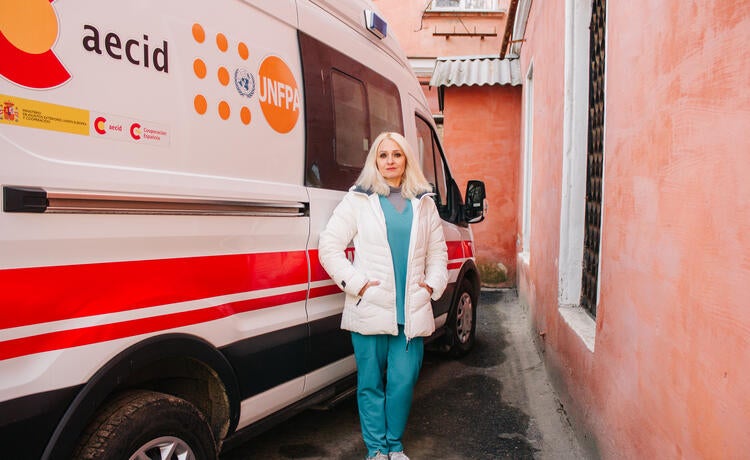News
Explainer: What is UNFPA and why does it matter?
- 24 January 2025
News
UNITED NATIONS, New York – Choosing whether, when and with whom to have a baby. Giving birth safely. Living free of sexual and gender-based violence. These are rights now enshrined in international law, yet they are out of reach for far too many people. This is why UNFPA, the United Nations sexual and reproductive health agency, operates in more than 150 countries, working with governments, experts, organizations and communities to secure the health and rights of women and girls everywhere.
What is UNFPA’s goal?
UNFPA’s mission is to deliver a world where every pregnancy is wanted, every childbirth is safe and every young person's potential is fulfilled. To this end, we aim to make sexual and reproductive rights a reality for everyone. This means guaranteeing that all people, especially women and younger generations, are able to access high-quality sexual and reproductive health services, including voluntary family planning, so that they can make informed choices about their lives and futures.
Why is there a United Nations agency dedicated to reproductive health and rights? Because not only are these immensely important on a private and individual level, but the consequences extend to entire societies, economies, and humanity.
How do reproductive rights affect you?
Violations of reproductive rights – from sexual and gender-based violence, child marriage and female genital mutilation, to denial of information about and access to contraception – prevent women and young people from reaching their full potential. Girls who become pregnant while still children themselves typically drop out of school. Women who cannot space their pregnancies are vulnerable to complications, disability and even death. The toll of these individual tragedies is, in fact, global.

The economic fallout is profound, too: A woman who dies in childbirth because she didn’t have quality maternal care will not be joining the workforce. She won’t pay taxes, invest in a business or raise the next generation of children. Both the economy and the community in which she would have lived will be the poorer for it.
Every investment in sexual and reproductive healthcare, and ending gender-based violence, is therefore also an investment in more inclusive, robust and resilient economies. With global cooperation and humanitarian funding under attack, and climate-driven crises taking an incalculable toll, denying women and girls the right and access to life-saving care is reckless on a human, economic and societal level.
What does UNFPA do?
Despite decades of advances, we still live in a world where every two minutes a woman or girl dies because of preventable causes related to pregnancy or childbirth. At least one in three women experiences physical or sexual violence at some point in her life because of her gender.
UNFPA works toward three critical goals: Ending preventable maternal deaths, ending unmet need for family planning, and ending gender-based violence and harmful practices.
In advancing this first goal, UNFPA is a global leader in developing and raising standards for maternal healthcare and midwifery training. In particular, UNFPA champions midwifery as a low-cost, highly effective means of quickly reaching women and saving lives in even the most difficult terrain. If fully invested and scaled up, midwifery care could avert two thirds of maternal and neonatal deaths.
In the knowledge that nearly half of all pregnancies worldwide are unintended, UNFPA is a critical global source for family planning. This helps girls and young people avoid unintended pregnancies and prevents abortions from taking place, and saves lives: Globally, complications in pregnancy and childbirth are one of the leading causes of death among adolescent girls, and unsafe abortion is one of the leading causes of maternal death overall.
In 2023 alone, UNFPA’s programmes helped to reach 27 million women and young people with sexual and reproductive health services. UNFPA-supported contraceptive programmes helped prevent nearly 18 million unintended pregnancies, nearly 6 million unsafe abortions and around 34,000 maternal deaths.

UNFPA is also a leader in preventing, addressing and ending gender-based violence – the most widespread human rights violation in the world. In addition to supporting protection measures, safe spaces and clinical management of rape, UNFPA also works to tackle the damaging beliefs that underpin acts such as female genital mutilation, sexual and intimate partner abuse, and child marriage.
UNFPA is also looking to the future, sounding the alarm over forms of gender-based violence perpetrated through, and amplified by, digital technologies. Women are facing “a turning point… with the prevalence of cyber extortion” says Abeer in Yemen.
How does UNFPA reach the most vulnerable?
UNFPA’s work is especially critical in humanitarian settings, where women do not stop getting pregnant or giving birth.

In over 59 crisis-hit countries, UNFPA is on the ground, providing antenatal care, maternal health services, and protection from – and treatment for – sexual violence. “Without the mobile health team, I don’t know what I would do,” Fatima*, a mother and survivor of sexual violence told UNFPA in Sudan.
Sexual and reproductive health should not be a luxury, available to only those living in peace, safety and financial security. All women, everywhere, deserve bodily autonomy, empowerment and healthcare – that is why UNFPA’s work matters.
Massiala Agostinho, who was eight months pregnant when a cyclone struck her home in Madagascar, was heartened by the arrival of a mobile clinic in her community. “It shows us we are not alone,” she said.